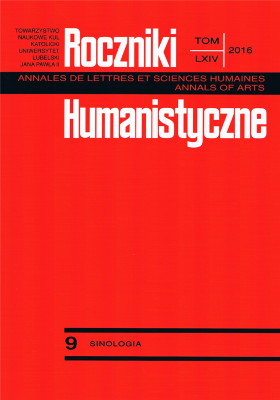Nierozpoznane collectivum w językach tocharskich: toch. A pratri ‘bracia’
An Unrecognized Collective Noun in the Tocharian Languages: Toch. A pratri ‘brothers’
Author(s): Krzysztof Tomasz WitczakSubject(s): Language and Literature Studies, Theoretical Linguistics, Morphology
Published by: Towarzystwo Naukowe KUL & Katolicki Uniwersytet Lubelski Jana Pawła II
Keywords: collective nouns; Indo-European morphology; Tocharian languages
Summary/Abstract: The interpretation of Tocharian A pratri ‘brothers’ is highly controversial. Some re-searchers interpret it as the nominative dual of the East Tocharian noun pracar (m.) ‘brother’ (= Toch. B procer), others as an irregular form of the nominative plural, and yet others suggest that the form in question should be treated as a scribal error. The present author demonstrates that the collective noun *bhrātriyā (f. coll.) ‘brotherhood’ is securely attested in the Indo-European languages, cf. Attic Greek φρᾱτρίᾱ, dial. φᾱτρίᾱ (f.) ‘brotherhood; people of kindred race, tribe, clan’; Lithuanian brotìja (f.) ‘circle of the most faithful friends’; Old Slovenian bratria, Old Chakavian bratrja, Old Russian братрия (f. coll.) ‘brotherhood’, Old Polish (rarely) bratrza (f. coll.) ‘brotherhood, brothers’ (< Proto-Slavic *bratrьja f. coll. ‘brotherhood’). Toch. A pratri ‘brothers’ derives from the same Indo-European archetype and represents a nomen collectivum used as the nominative plural. A similar phenomenon is attested in the Slavic languages, cf. Pol. bracia (nom. pl. ← f. coll.) ‘brothers’, earlier ‘brotherhood.’
Journal: Roczniki Humanistyczne
- Issue Year: 64/2016
- Issue No: 9
- Page Range: 119-133
- Page Count: 15
- Language: Polish

